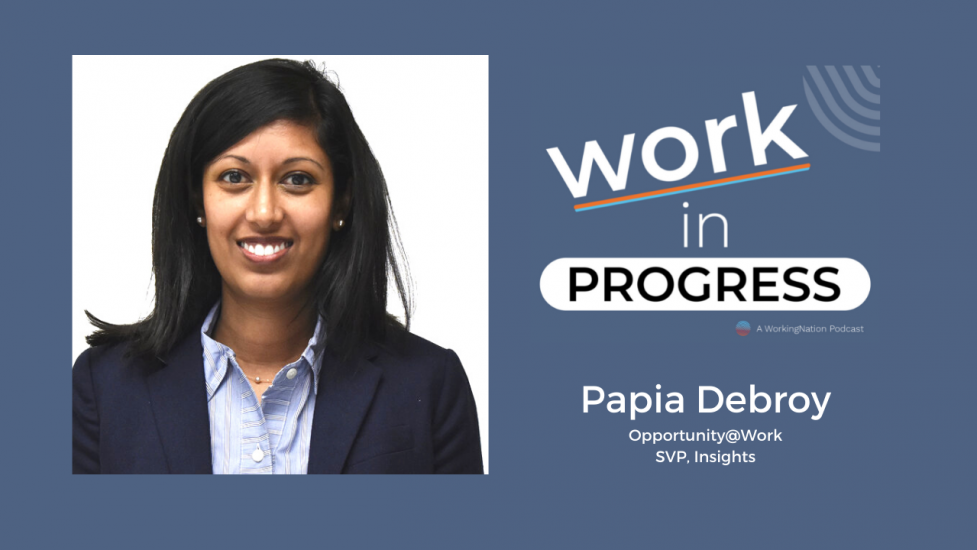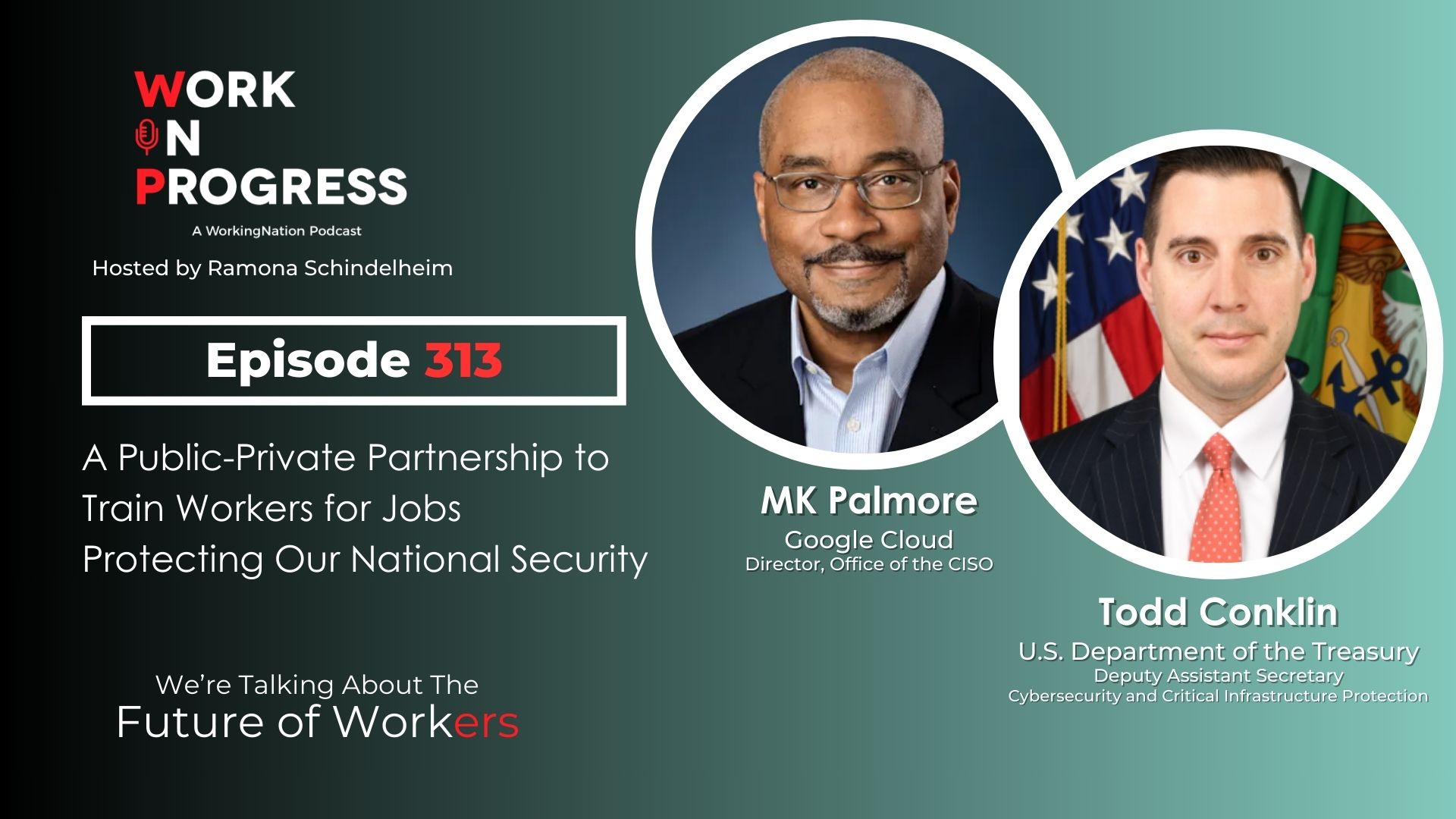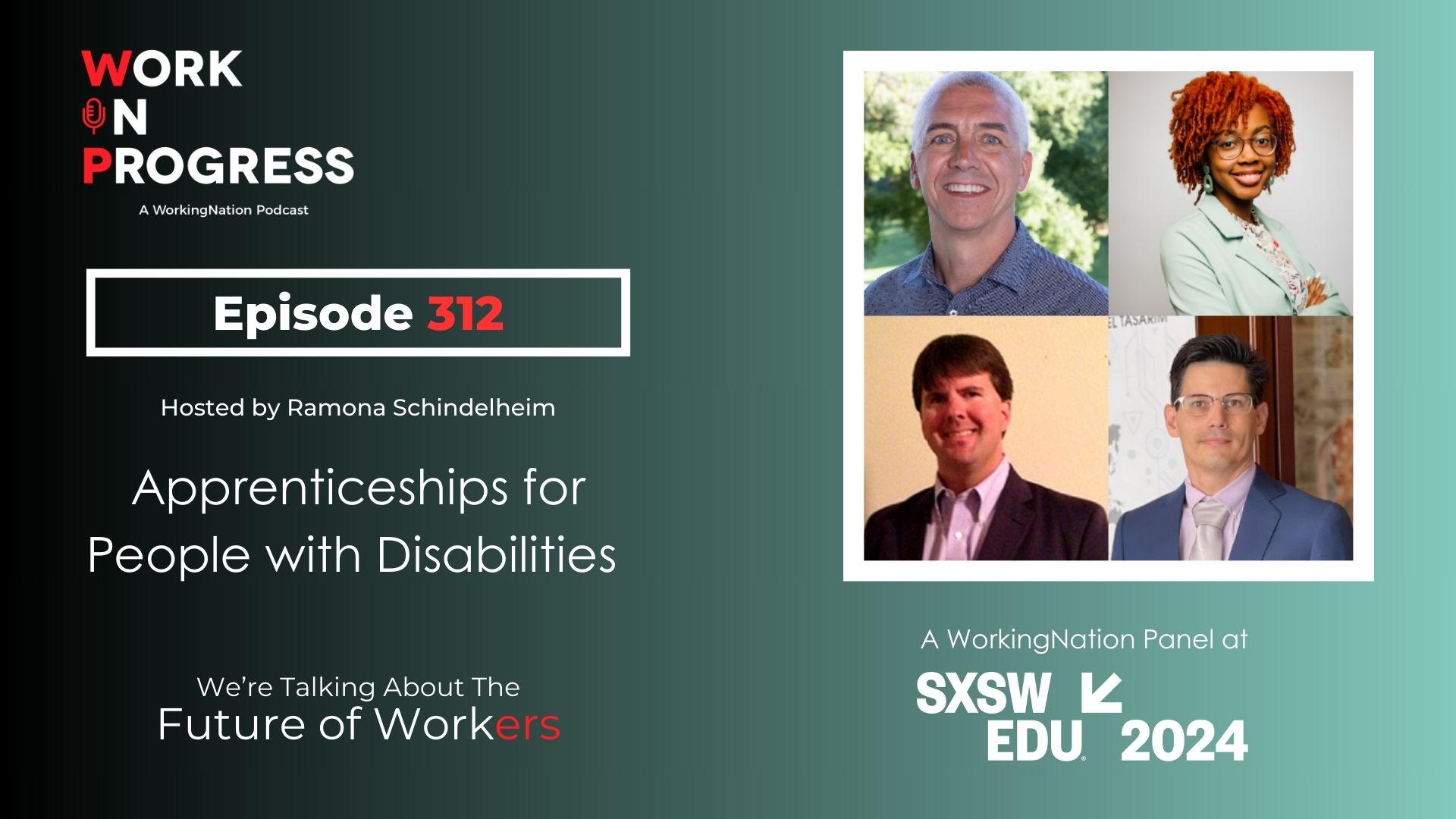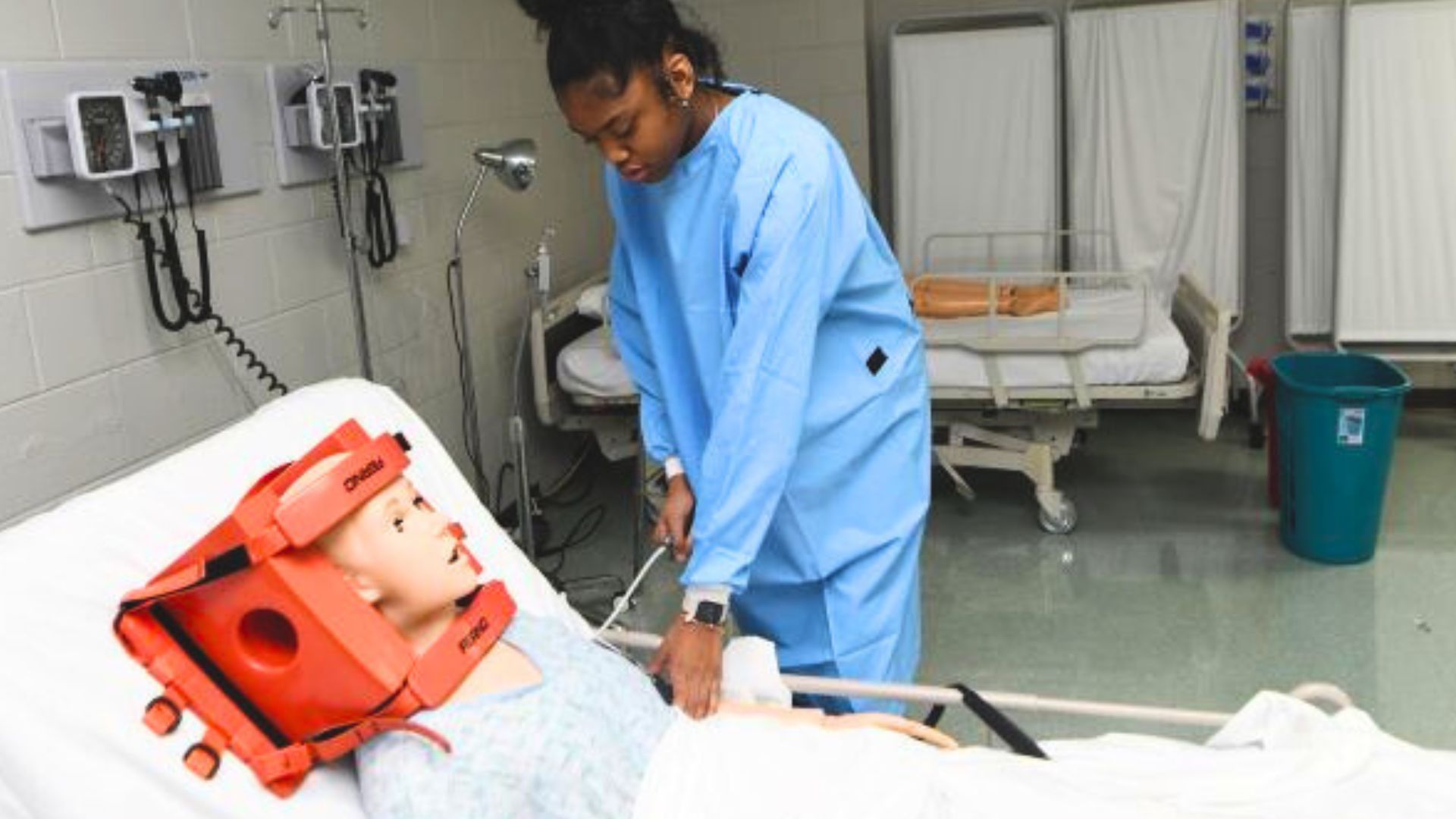Podcast: Play in new window | Download | Embed
Subscribe: Apple Podcasts | Google Podcasts | Spotify | Pandora | Youtube Music | RSS
In this episode of Work in Progress, Opportunity@Work senior vice president, Insights, Papia Debroy and I discuss Rise with the STARs, a new report from the nonprofit.
If you are not familiar with the term STARs, it is a word championed by Opportunity@Work to describe the more than 70 million workers who are Skilled Through Alternative Routes.
“There are a lot of different pathways by which our workers gain skills that are valuable for work,” explains Debroy. “Those pathways include community college. They include military service. They include volunteering in your local community. The most common way that workers learn is frequently on the job, by showing up to your job every day, doing the tasks required of your specific profession, and getting better at those skills.”
Debroy points out that STARs are often overlooked when a job requires a four-year college degree, which creates an opportunity gap. One of the major conclusions of the new Rise with the Stars report is that it takes a STAR 30 years of work experience to earn what someone with a college degree earns at the beginning of their career.
“This is the heart of one of the many challenges that this part of our workforce is experiencing in this generation. When a STAR entered the workforce in 1989 at the age of 25, they were earning less than the worker with the four-year college degree. That has traditionally been the case in our U..S labor market. What’s stunning for this generation is that the STAR doesn’t catch up. So 30 years of work experience is not allowing them to earn in wages what the bachelor’s degree worker was earning on day one of their career,” Debroy tells me.
It’s not just the worker who is missing out. Employers are missing out on untapped talent by putting up what Opportunity@Work describes as a “pointless barrier.” The report offers up a couple of tools to remove the barrier to opportunity, including the Star Mobility Index and 30 Jobs to Turn the Tide.
You can read about these and other observations and recommendations in the report, and here about them in this podcast.
Please check both out, as I leave you with these final thoughts from Debroy.
“It’s important to recognize that more than half of our workforce are STARs. These are workers with the high school diploma without the four-year college degree, but who have incredibly valuable skills in the U.S. labor market. In fact, there are more than 30 million today in our U.S. labor market who we term to be rising STARs. These are folks who, based on skills with their current job, actually have the skills to do significantly higher-wage work in several other occupations. That’s an incredibly important insight, because for us to now recognize those skills means that we have to think about how to open up access and opportunity to this population of STARs.”
Episode 218: Papia Debroy, SVP, Insights, Opportunity@Work
Host & Executive Producer: Ramona Schindelheim, Editor-in-Chief, WorkingNation
Producer: Larry Buhl
Executive Producers: Joan Lynch and Melissa Panzer
Music: Composed by Lee Rosevere and licensed under CC by 4.0.
Download the transcript for this podcast here.
You can check out all the other podcasts at this link: Work in Progress podcasts












